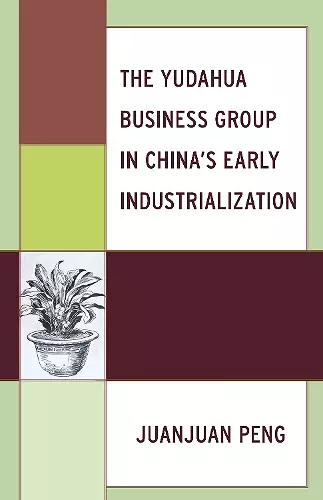The Yudahua Business Group in China's Early Industrialization
Format:Hardback
Publisher:Lexington Books
Published:4th Mar '20
Currently unavailable, and unfortunately no date known when it will be back

By tracing the history of Yudahua from the late nineteenth century to the middle of the twentieth century, this study analyzes a successful inland business model among textile companies in modern China. The steady growth of this enterprise relied primarily on its strategy to focus on low-end markets to locate new mills in underdeveloped interior regions. This strategy further allowed the enterprise to pioneer industrialization in its host localities, demonstrating a major social and economic impact on the local societies. At the same time, Yudahua’s unique team leadership pattern—five leading families shared its ownership and management—made the business an atypical family firm and allowed relatively easy institutional departure from Chinese social networks and adoption of Western corporate hierarchy. Therefore, by the late 1940s, Yudahua had gradually developed into a fairly integrated business group with a unified management structure and routinized connections between its member mills, which differed noticeably from the loose alliances normally found in other early twentieth-century Chinese business conglomerates.
Peng’s study of Yudahua extends recent work on Chinese business history by focusing on entrepreneurs whose business structure foreshadows reform-era corporate groups, and who—like Huawei’s current leaders—honed their commercial and technical skills by developing markets in China’s inland regions. -- Thomas G. Rawski, University of Pittsburgh
ISBN: 9781498507011
Dimensions: 229mm x 161mm x 22mm
Weight: 476g
206 pages